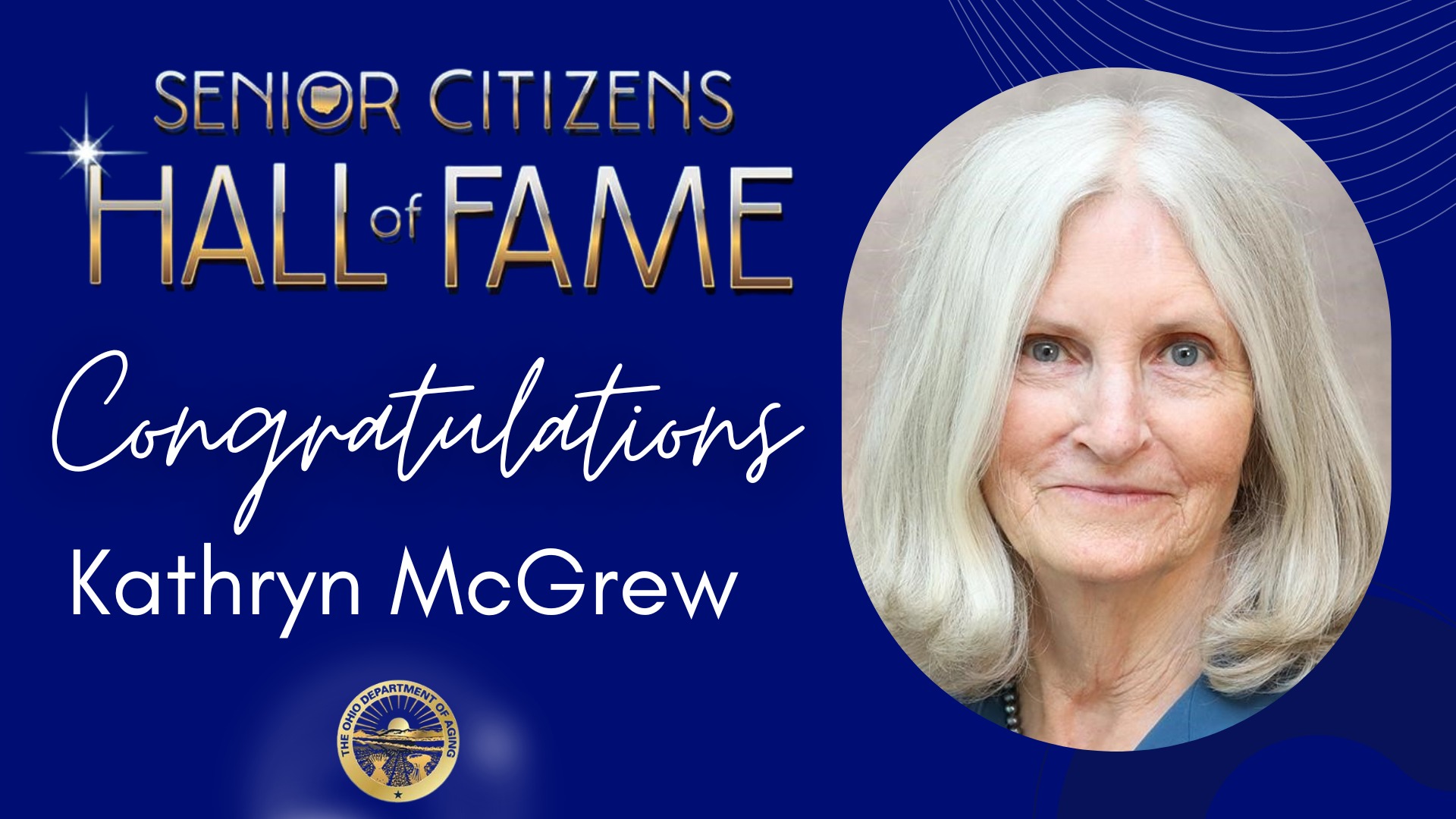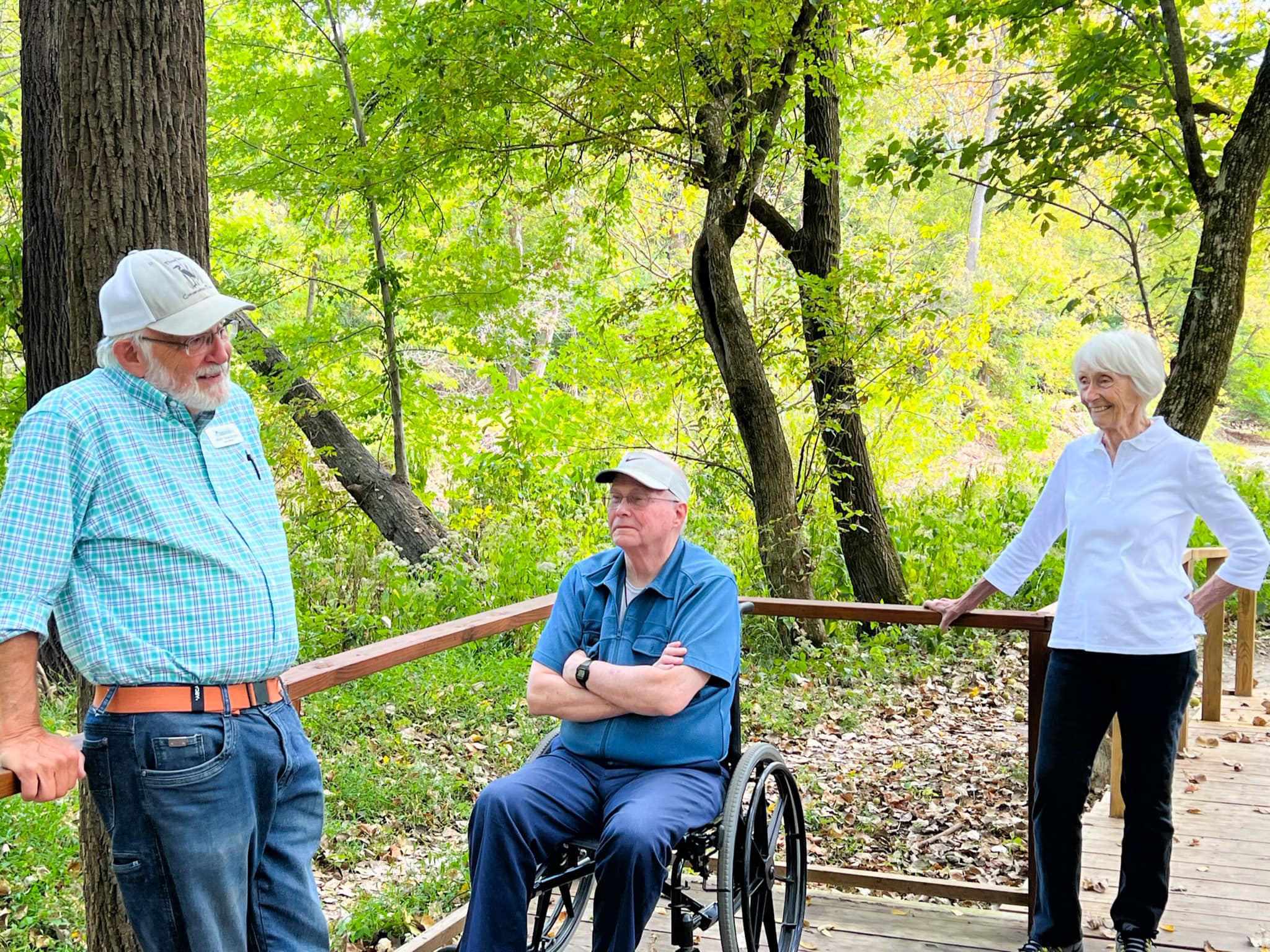Kathryn B. McGrew is an impressive woman. Miami University Professor Emerita of Sociology and Gerontology, Dr. McGrew has spent her career researching and teaching others about our aging population, elderly services, long term care policies, caregiving, and support networks, but that is only the beginning.
When you meet Dr. McGrew, or “Kathy” as she prefers to be called, it is impossible to ignore her energy and intellectual curiosity, her down-to-earth personality, and her genuine beauty. Kathy has done more than just teach about navigating the “fourth season of life”—she is living it. McGrew explains, “My professional world, filled with teaching and research about aging, long-term care and caregiving, is now my very personal world.”
McGrew followed a clear path in her education by completing a B.A. in Psychology and Sociology in 1969, a Master of Social Work in 1971, and a Ph.D. in 1990 from The Ohio State University, College of Social Work. Her career also evolved to demonstrate not just an intellectual interest in social work and psychology, but a true desire to help others improve their lives and relationships. Career highlights include:
- Residential group home counselor for adult women with developmental disabilities
- Psychiatric Social Worker and Clinical Instructor
- Hospital Social worker for patients and Alcoholism out-patient clinic
- Family Group worker for range of clients including incarcerated women, parents of teenagers, single parents, abusive parents, parents of disabled children and foster parents.
- Social Worker for Family Services of Butler County, Ohio which included Coordinating the Comprehensive Services Center for School-age Expectant and New Parents.
- Mediator for dispute resolution in the nursing facility setting.
- Senior Research Scholar at Miami University’s nationally recognized Scripps Gerontology Center
- Associate Professor of Sociology and Gerontology at Miami University in Oxford, Ohio
McGrew’s experience and research has also made her a sought-after consultant to organizations like the Butler County Board of Mental Health, the Center for Forensic Psychiatry in Hamilton, Ohio, and nursing facilities needing assistance with policy and procedure development, program development, social services supervision, in-service education and training, records audit, and crisis intervention.
In addition to all of this, McGrew still found time for community service by serving on the Boards of organizations like:
- Butler County Probate Court
- Butler County Mental Health Center,
- Family Services of Butler County
- Oxford Advisory Welfare Service
- Oxford Chamber of Commerce
What may have been her most important volunteer position, however, is her board membership with The Knolls of Oxford, Continuing Care Retirement Community. The impact of this position was likely not realized in her earlier years as a founding board member, but McGrew and her husband David now call The Knolls of Oxford home. Kathryn admits, “I thought then, in my relative youth, that I was building a great community where “others” could grow older. Those others soon became my friends, my own mom and dad, and more friends. Then—no surprise—The Knolls of Oxford became my home with my husband Dave.” Residents at The Knolls recognize McGrew’s expertise and often seek her advice while navigating the world of health care directives and spousal caregiving. They also recently elected her to serve on the organization’s joint foundation board as the sole resident representative.
McGrew’s most personal experience in the field, however, has been the reality of dealing with the very issues she researched and taught for so many years. Kathryn’s husband, David—a retired and beloved local veterinarian—was given a very sobering diagnosis years ago that has progressed to serious cognitive, communicative, and physical decline. McGrew became her husband’s full-time caregiver and experienced, first-hand, the extremes lived by so many facing the same reality. While she is the first to be transparent about the struggles, Kathryn has also been an unwavering advocate for her husband, herself, and others in similar situations.
Kathy is not slowing down any time soon. She continues to advocate for quality long term care and respite for caregivers. She is a vocal supporter of resources like Adult Day Services, caregiver support groups, and the continued development of programming for those with dementia and other cognitive decline. For example, McGrew recently became certified in the nationally recognized program TimeSlips in order to bring it to The Knolls skilled care community where her husband now resides.
For all her accolades, Kathryn B. McGrew is incredibly humble and one of the most approachable people you will ever meet. Her genuine care for others is what continues to make her a distinguished asset to the field of aging, and such a respected and loved member of the community.




